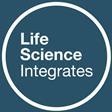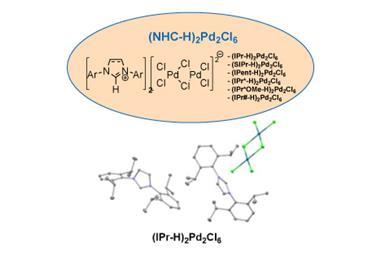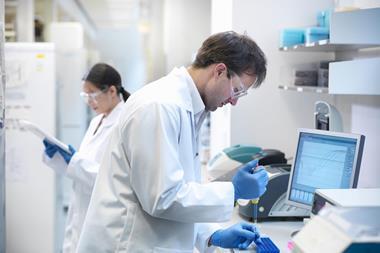UK-based company Life Science Integrates exists to facilitate collaboration between digital, pharma and life sciences industries – helping form partnerships that revolutionise healthcare
Digitalisation is disrupting businesses across all industries. And, although slow to implement at first, the pharma and healthcare industries are waking up to this digital revolution. The growing need for personalised approaches to medication and healthcare is leading to an increased demand for novel and impactful innovation within the healthcare sector. Digital technology – including big data analytics, AI and the Internet of Things – has the potential to accelerate development within the pharma and healthcare industries.
Pharma Integrates is a unique event that brings together key industry leaders from a wide range of sectors

Substantial growth in the number of tech companies operating within the healthcare sector this past decade has coincided with increased recognition of the potential for innovation. And, to ensure future innovation across the healthcare sector, it is crucial that key stakeholders – in both the healthcare and technology sectors – share insight and expertise. Pharma Integrates is a unique annual UK event that brings together key industry leaders from a wide range of sectors – including pharma, digital technology and government agencies – to spark industry-changing conversations and collaboration.
Getting personal
It is estimated that one in 17 people worldwide will suffer from a rare disease at some point. In the UK, this means more than three million people will have a rare disease, according to estimates from the charity Genetic Alliance UK. However, current healthcare treatments often fail to help these patients due to the traditional one-size-fits-all approach of blockbuster medication. By integrating big data analytics, patient empowerment and flexible manufacturing, the pharma industry can shift towards more personalised and bespoke medications for specific patient groups. In this approach, a patient’s genetic data – and information about their health, lifestyle and environment – is evaluated by medical professionals. It is then used to separate patients with similar symptoms into far narrower groups to target medicine accordingly.
Technology can help develop truly disruptive beyond the pill solutions to deliver the complete healthcare package
Once the therapeutics have been developed and formulated, agile and efficient pharma manufacturing processes become crucial to producing personalised medicines. Digital advances revolutionise these drug manufacturing processes because smart and connected machines can improve the efficiency of resources and equipment. Using technologies like machine learning and AI, manufacturers can cut waste and scrap, increase sustainability and reduce cost. Additionally, developments in genetic sequencing – including fluorescent labelling and general automation – have had a huge impact in this field. It is now possible to draw precise information on the causal mechanism of disease, which helps refine clinical diagnoses. With this information, medical providers can provide more insight on targeted therapies, avoid administering a drug that might cause an adverse drug reaction and design more precise drug dosing for patients.
The complete package
Due to a highly competitive market, pharma companies are racing to expand and diversify their offerings. As companies add services that complement their drug offerings, digital technologies can help develop truly disruptive beyond the pill solutions that deliver the complete healthcare package.

Technologies already familiar to us – including wearable fitness trackers and health-tracking apps – are changing the way we monitor and manage our own health. Around three quarters of US consumers view technology as an important tool for managing their health, says a recent survey by Accenture Consulting. Digital tools like trackers and apps have the potential to provide information to patients about their own wellbeing. This may assist them in the decision-making process about aspects of their healthcare needs.
Pharma Integrates understands the need for the life sciences, pharma and digital technology industries to collaborate

Advanced digital technologies are critical to creating bespoke and detailed healthcare treatments plans. By analysing the large volumes of information generated by wearable digital trackers, pharma companies can gain a deeper understanding of patients’ healthcare needs. However, analysing this data is not a traditional strength of the pharma industry. Conversely, data analysis is common practice for technology companies, many of which are now entering the healthcare market, or partnering with companies already in it. As digital technology players bring expertise to the life science industry, it is vital that the pharma market harnesses it and integrates its practices into their processes. Because the Pharma Integrates team understands the need for collaboration between these industries, our 2019 event has been designed to draw key industry thought leaders together.
Keeping companies compliant
The pharma industry is among the most heavily regulated and highly competitive industries in the world. As a result, when compared to other consumer-focused industries, the healthcare and pharma markets are traditionally slow to adopt emerging technologies. This is largely due to safety concerns, regulatory constraints and intellectual property issues. However, the rewards upon adoption can be bountiful. Digital innovation helps drive business performance by aiding companies in meeting regulation and overcoming data sharing worries.
The market appetite for digital integration in healthcare continues to grow at an incredible pace. To capitalise on this transformative opportunity, pharma companies must learn from digital companies and nurture their own digital capabilities. To do this, it is important that leaders from both industries are able to come together and discuss the key topics that are shaping the landscape of global healthcare.
Samuel Thangiah is a co-founder and executive director of Life Science Integrates

















No comments yet